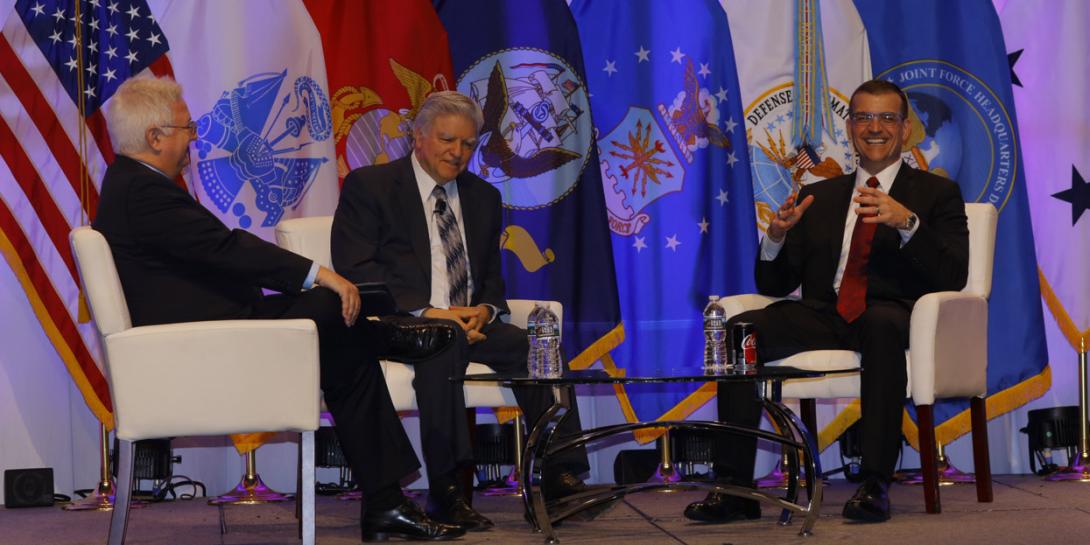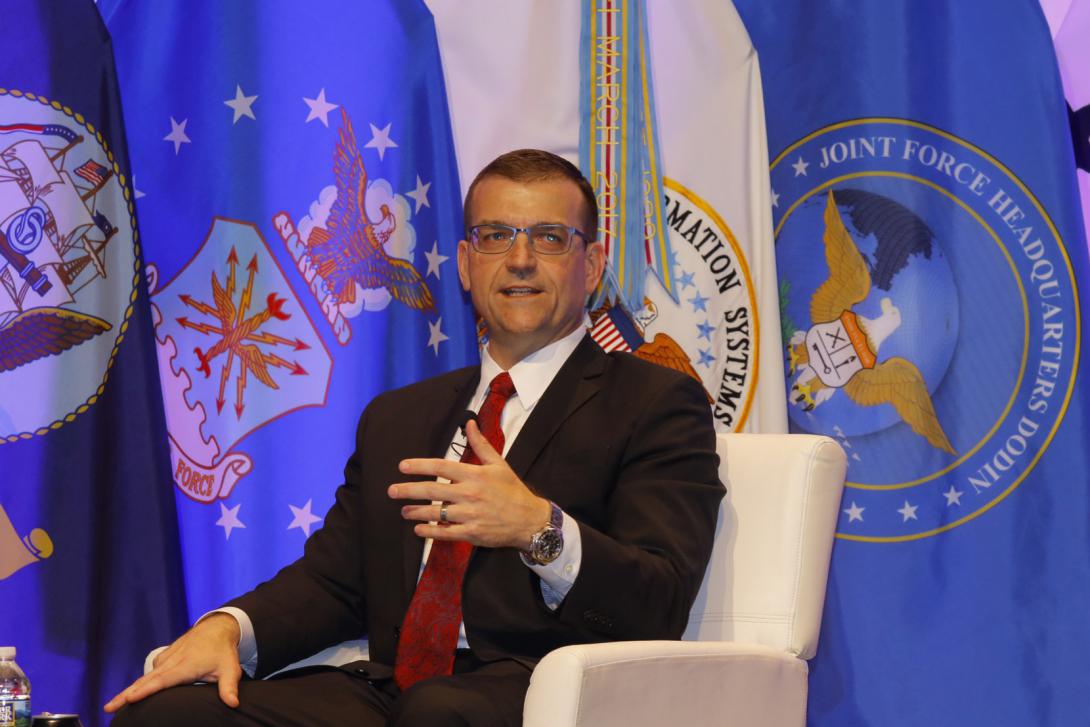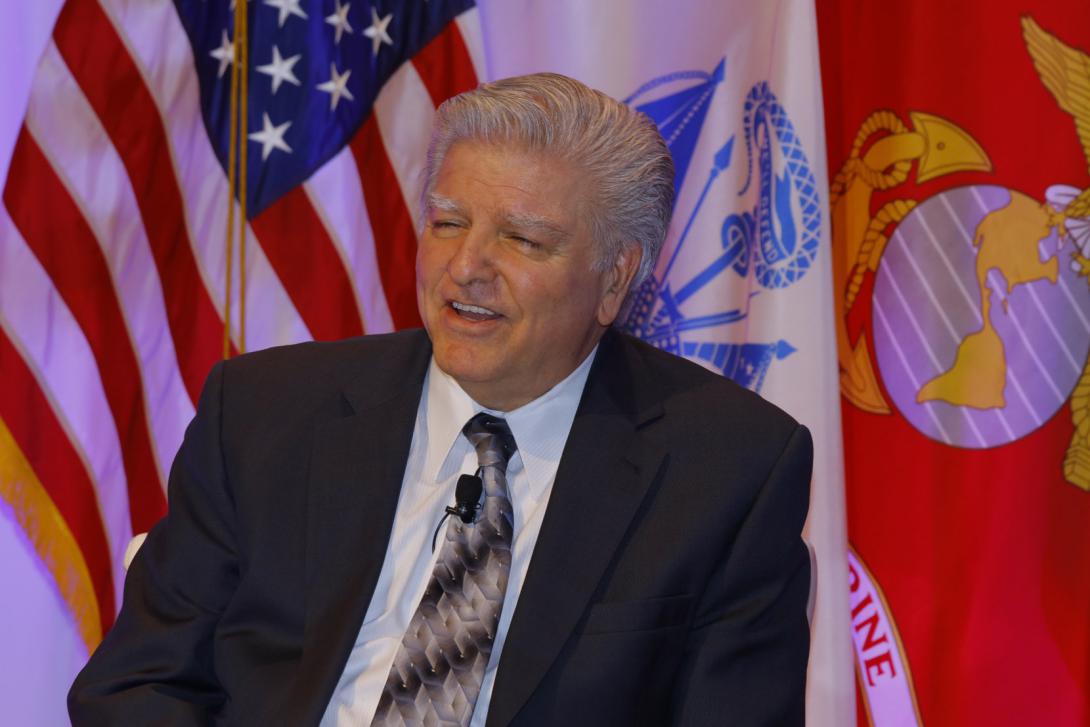DISA Drafting Artificial Intelligence
If cyber is the ultimate team sport, as many in the U.S. Defense Department like to say, then artificial intelligence (AI) would likely be the number one draft pick for the Defense Information Systems Agency (DISA).
Anthony “Tony” Montemarano, DISA’s executive deputy director, stressed the importance of AI during a luncheon plenary on the final day of the AFCEA TechNet Cyber conference in Baltimore. “We’ve heard about it time and again. Artificial intelligence is probably the most significant technology we have to come to grips with.”
The younger generation, he noted, does not want to be burdened with security barriers when using technology. “We have to have technologies that understand them, learn from them. We’ve got to make it easy.”
Tony Montemarano, @USDISA, #AI is probably the most significant technology we have to come to grips with.#AFCEACyber #AFCEATechNet
— George Seffers (@gseffers) May 16, 2019
Montemarano recalled having to log into a Defense Department system a couple of years ago and being handed a 14-character password for access. “I can’t remember my social security number. I gotta remember 14 characters. So, what do I do? I take those 14 characters, and I put them underneath my keyboard so nobody would find them,” he recounted, possibly joking. “AI has got to be there for us to make it easy for these young kids—and for the older ones.”
Jeffrey Jones, executive director, Joint Force Headquarters–Department of Defense Information Network (JFHQ-DODIN), stressed data as the number one challenge. “We have a tremendous amount of data. We have access to a less than optimal portion of that data.”
Jeffrey Jones, JFHQ-DODIN: It's difficult for us to run data analytics and understand the state of the DODIN#AFCEACyber #AFCEATechNet
— George Seffers (@gseffers) May 16, 2019
Jones compared tables in the convention hall to data links on the DODIN, none of which look the same. “We have to be able to access that data that is completely unstructured. None of it looks the same. It is difficult to really take a big-picture look and run some big data analytics on that to give us the state of the DODIN,” he said. “If data is out there, we want access to the data that we want when we want it. If we have to wait days to access the data, that’s of no help to us.”
The JFHQ-DODIN executive director also pointed out challenges associated with proprietary data. “To be honest, proprietary data formats, that we can’t manipulate and look at in a way we need it in conjunction with all the other data, that’s a nonstarter for us these days.”
Jones said machine learning, a subset of AI, can help with the data issues. “We need machine learning to operate at scale across the enterprise to really crunch all the data that we have. Then, we need the advanced artificial intelligence to help us make decisions.”
He described teams of JFHQ-DODIN data analysts who sit in front of the keyboard, watching alerts pop up on the screen. “They pick one out, and they analyze that for the next four hours. It might turn into something, it might not. And then they do the same thing in the afternoon,” he offered. “We really need artificial intelligence to tell us what we need to look at. We can let the machine do the majority of the work and then the humans come—as long as we’re in the loop—let us come in and make that final decision on what final decision to take.”
Jeffrey Jones, JFHQ-DODIN: We need #MachineLearning to operate across the enterprise to crunch all the data that we have.#AFCEATechNet #AFCEACyber
— George Seffers (@gseffers) May 16, 2019
On the other hand, AI may be capable of making some of those decisions. “There are a lot of actions that may not need human intervention. We’ve talked a lot this week about self-healing networks and everything else. There are some things that maybe we can relinquish to the machine. We need to be comfortable with a level of autonomy along with the artificial intelligence," Jones said.
Montemarano warned, however, that AI is no silver bullet. “AI is the new buzzword. It is another tool to get us to the destination, but it’s not going to fix everything. We’re going to be hard pressed to adapt to it. It’s going to have to be integrated evolutionarily, and then eventually it will come and dominate the future.”







Comments